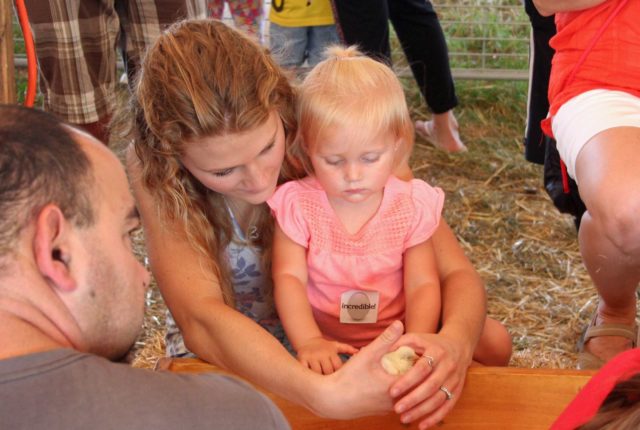It’s not a topic that immediately comes to mind while traveling through the gently rolling hills of Lancaster County’s vast agricultural landscape. But it’s there, lurking in the barns and out in the fields. It’s there, along the rows of fruit trees and in the many food-processing facilities. It’s there, actually, on the prongs of your fork.
It is STEM, the acronym for science, technology, engineering and math. All four subjects can be connected to the agriculture industry, and plenty of examples of their uses can be found right here in this county.
Since 2017, the North Museum of Nature and Science have been working together to recognize the relationship between STEM and Ag by offering six awards for ag-related STEM topics during the annual Science Fair.
From its founding in 1953, the North Museum of Nature and Science has been Lancaster’s place to discover science, nature, and cultures–from a turtle’s webbed feet to the dirty chunks of ice that form a comet. For generations of visitors, a trip to the North has sparked their curiosity, leading to a journey of lifelong learning. At the North Museum we are dedicated to inspiring curiosity, discovery, and a lifelong appreciation of nature, science, and cultures through educational exhibits, collections, and programs.
The North Museum Science and Engineering Fair (NMSEF) serves as Lancaster County’s only free, ISEF-affiliated science fair. Our fair is open to Lancaster County 7th – 12th grade students in public, private, or home schools. The Fair was 100% virtual in 2021. Winners of the North Museum Science and Engineering Fair advance to the Intel International Science and Engineering Fair, the world’s largest international pre-college science competition.
This year, the winners of Lancaster Agriculture Innovator Award in the form of a plaque and $100 were…
- Curtis Carvell, Warwick High School, Determination of Chlorophyll in Olive Oil
- Rylee Capwell, Ephrata High School, The Effects of Differing Cholesterol Lowering Agents on Pig Fat
- Christopher Reibel, Lancaster Country Day School, Invasion: Studying the Spread of Invasive Species
- Joshua Rennekamp, Conestoga Valley High School, Using Bivalve Mollusks to Detect Contaminants in Water
- Charles Loose, Ephrata High School, The Effect of Various Weed Killers on Plant Growth
- Sydney Kozak, St. Leo School (junior division), Does Changing the pH in Soil Affect a Plant’s Growth?
In 2020, the winners of the awards from the Lancaster County Agriculture Council include…
- Everett Roy, Centerville Middle School, “Herbicide Efficacy…”
- Hendrik Beelen, Lancaster County Christian School, “Using Technology to Improve…”
- Margaret Bila, Sacred Heart School, “Growin’ with Graywater”
- Jacquelyn McBride, Conestoga Valley High School, “The Removal of Industrial Pollutants”
- Kierra Parsons, Ephrata High School, “Waste Poultry Feathers”
- Emerson Long, Landisville, Middle School, “Controlling Filamentous Algae”


